10 Horrifying Predictions Scientists Have Made For The Future Of Humanity
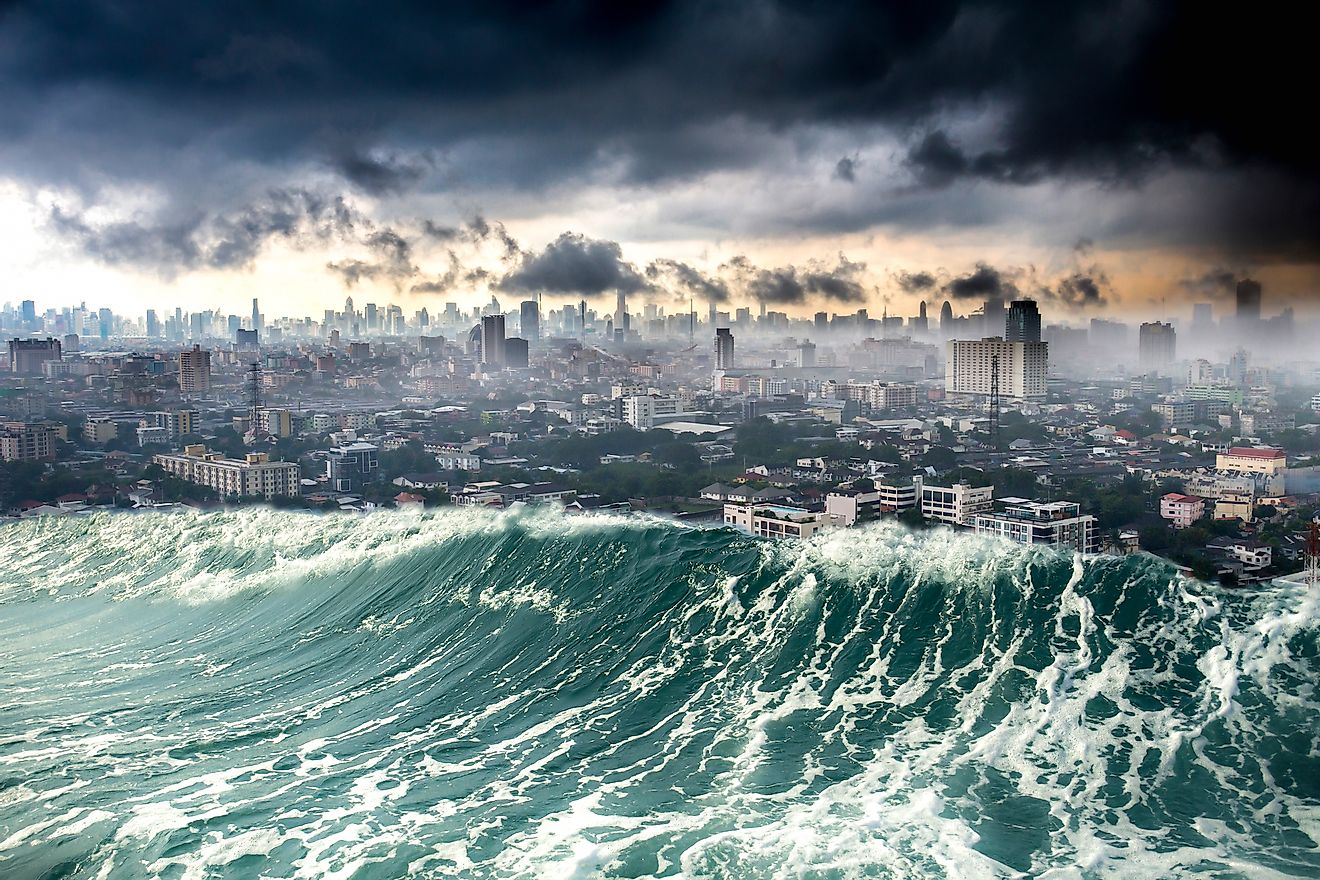
- • The availability of DNA editing technologies will make it easier for people to develop their own deadly viruses
- • Food and water scarcity are expected to be a significant future problem that will affect 50% of the projected 9.7 billion people in 2050.
- • A majority of heavily industrialized urban centers will be uninhabitable in the future due to excessive air pollution.
As far as the accuracy of the information goes, none can beat scientific findings. They are results of fact-finding research collected over countless person-hours and backed with evidence. Scientific predictions have for ages shaped out the outlook of the planet and the future of everything in it that is currently in the hands of human species. Scientific forecasts on the future of humanity are never good, and this is because humanity has proved over and over again how self-destructive they can be. In the blind pursuit of its preservation, humanity keeps destroying the same things upon which their survival hangs upon entirely. So, what are some of the most horrifying scientific predictions that have been made regarding the future of humanity?
Increase of natural disasters due to climate change
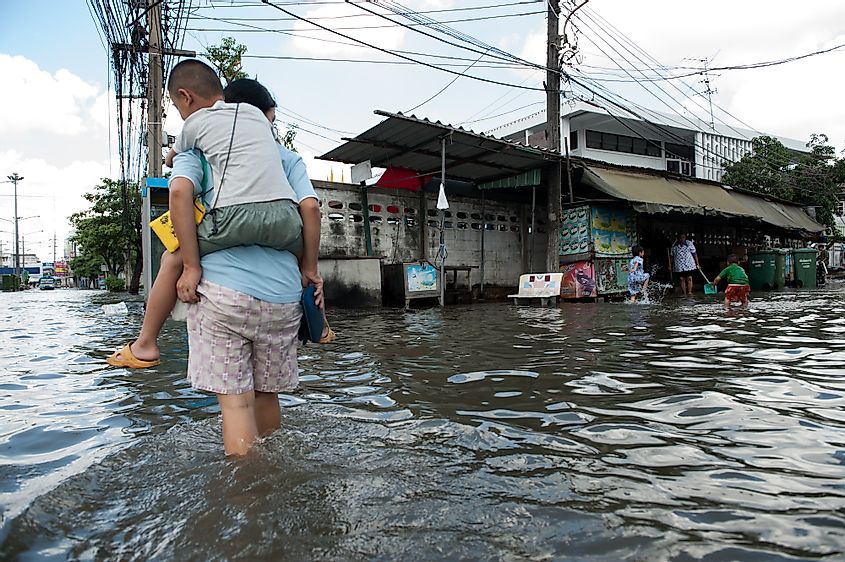
Climate change has been an iron noose around humanity's neck for over a century now, and it does not show any signs of slowing down. According to scientists, the planet only has a little over a decade to change how energy is used to reduce the impact of climate change before it is too late. Once the tipping point is reached, then all hope of reversing the ravages of climate change will be impossible. Coastlines around the world are slowly being overwhelmed by rising sea levels as more ice from up north is melted by increasing temperatures. Cyclones are growing in frequency and intensity within the tropics. It is predicted that if the world temperature were to rise by another three degrees, then most of Florida and Bangladesh among other regions would be underwater.
Outbreak of new pandemics

When discussing the future of humanity, epidemics are never far away. There have been significant instances in the timeline of man's existence where humanity was almost wiped out by diseases. Smallpox took out 300 million people at its peak. The modern world has higher probabilities of pandemic outbreaks than ever before, couple that with how easy traveling has become, then you have yourself a ticking time bomb. Experts have warned that antibiotics are being rendered ineffective every year as viruses mutate, and they believe that by 2050 deaths caused by resistant pathogens will increase to 10 million a year compared to the current 700,000 annual deaths.
Global enery crisis

The consumption of fossil fuels has been on a non-stop full throttle for the last 200 years. Crude oil reserves are disappearing at the rate of four billion tons a year. If this pace of consumption is sustained, oil reserves will completely run out in the next 50 years. If, by that time, the world will not have embraced a new source of clean energy, then most of the current industries, including food production, will be rendered defunct. Researchers have predicted a global energy crisis that will be caused by the high demand for energy against a decline in coal and biofuels reserves
Mass destruction due to asteroid impact
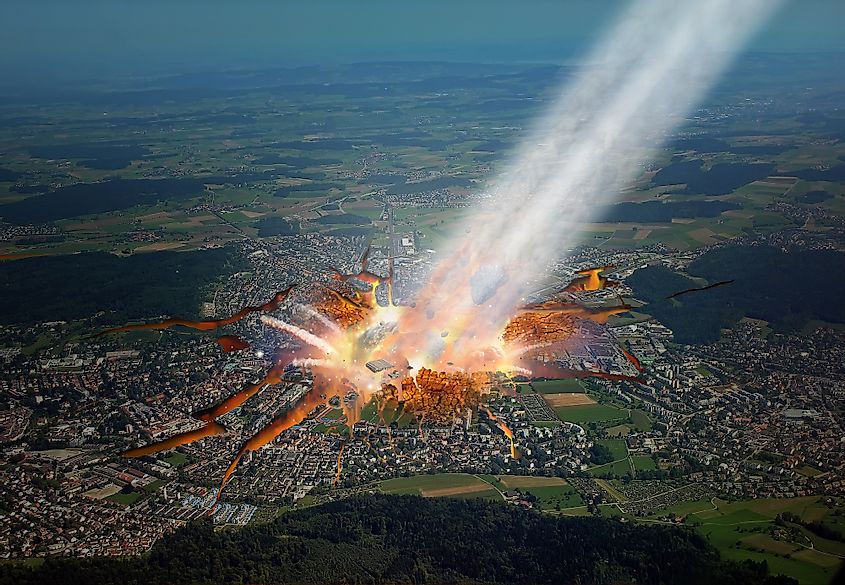
It has happened before humans walked the earth, and chances of another impact happening again may be slim, but not impossible. Asteroids large enough to cause a total wipeout hit the planet once every 120,000 years, with many other small ones striking the earth in between. In 2011, NASA scientists revealed that they had mapped out space objects that were bigger than a mile in radius that is likely to hit the planet. In the event that an asteroid of that size strikes the earth, it would displace enough dust into the atmosphere to block the sun and cause famine wiping out hundreds of millions.
The domination of artificial intelligence
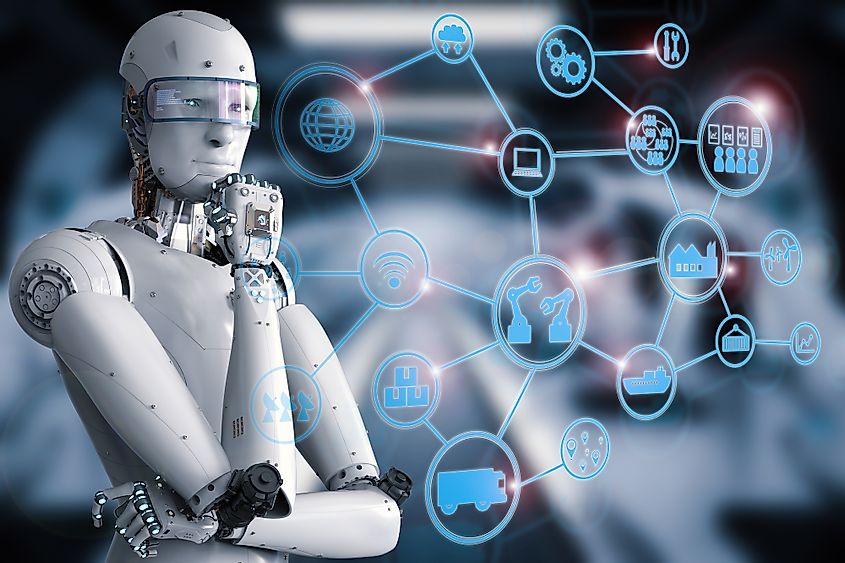
There is a lot of good that comes with technological advancement. In recent years, the development of Artificial Intelligence has turned into a race. There are benefits of using AI, but experts have also warned of the dangers of granting too much power to technology. Wars are now being fought remotely using drones controlled by operators thousands of miles away from their targets, striking enemies with frightening precisions. Plans are underway to entirely cut out human input from the drones by the introduction of Artificial Intelligence drones that make their own decisions. At the current pace of technological advancement, the world will be a different place a century from now, and the possibility of that future being run by Artificially Intelligent machines is not far-fetched. Replacing the human workforce with machines has already caused problems before, and it is expected to create more trouble in the future.
Biological and chemical warfare becoming popular
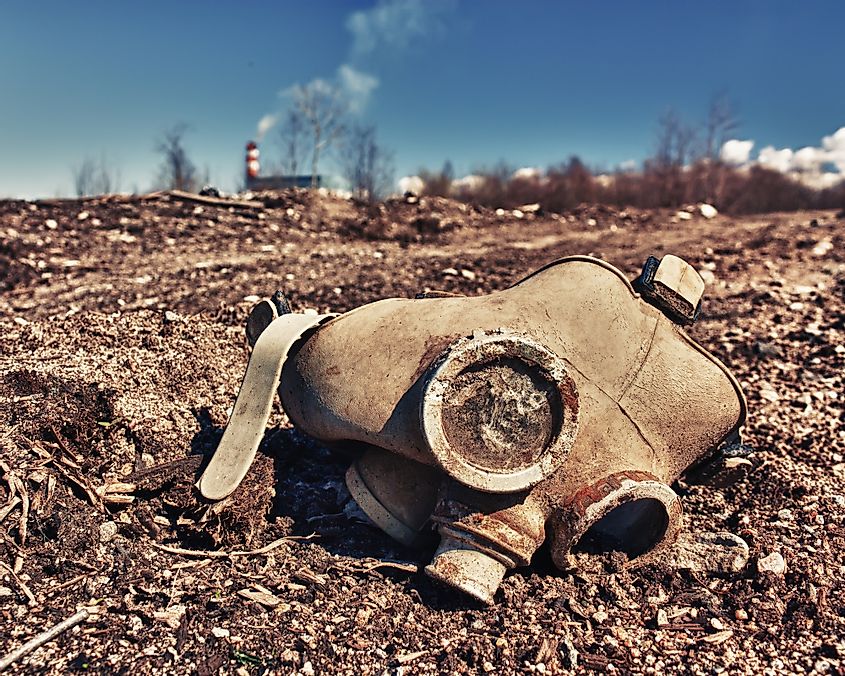
It is one thing to have diseases popping out from the natural world, but it is an entirely different situation when it becomes possible for these diseases to be engineered in the lab with the sole purpose of using them against fellow humans. The same goes for chemical warfare, where toxic chemicals are weaponized and used to end lives. Increased use of poisonous gases like Sarin and VX in conflicts is a potential future reality despite the international ban that has been imposed on them. The availability of DNA editing systems like the CRISPR means that anybody with knowledge of how viruses work can quickly develop their virus at minimal costs. With future technological advancements expected to go beyond imagination, the risk of biological and chemical warfare is going to increase exponentially in the next 50 years.
Overpopulation
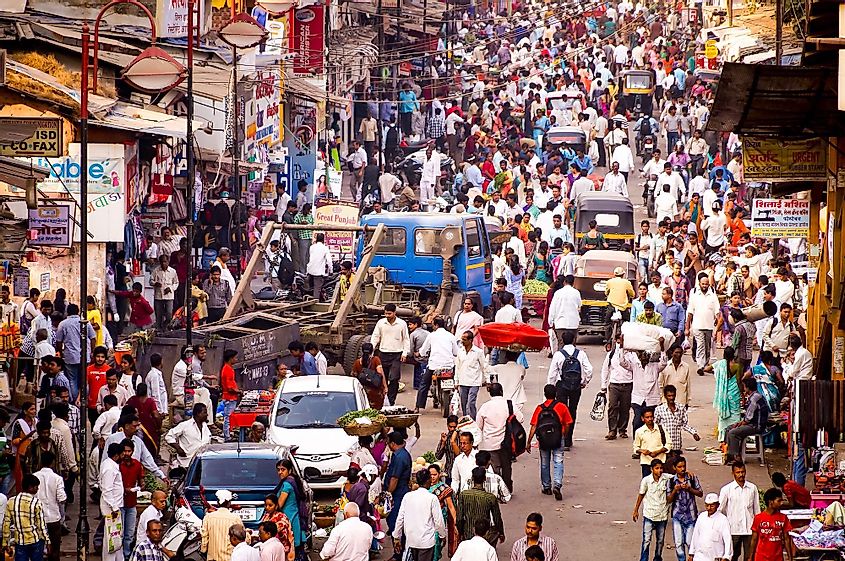
It took over 200,000 years for human populations to reach a billion for the first time. But it has taken only 200 years for that number to hit 7 billion people. If that rate of population growth is maintained, the world will be home to 8 billion people by 2025, and another 1 billion people will have been born by 2050. With resources diminishing, sustaining such a population will put a strain on nature and lead to civil unrest, hunger, and the spread of diseases. Urban centers will be the most affected, and they will see an increase in crime, slum dwellings, and a host of other problems that humanity is not ready to face.
Increase in air pollution
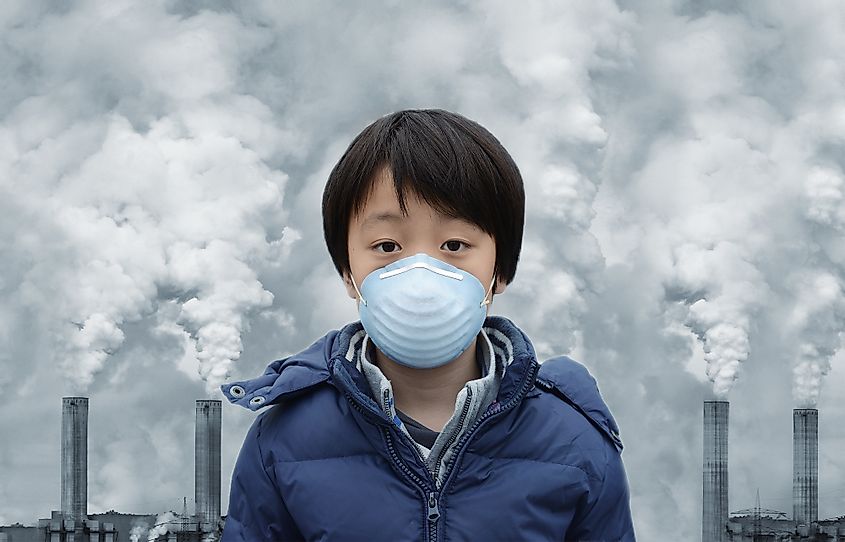
The quality of the air is expected to worsen, even further increasing respiratory diseases. Massive industrialization, mining, and deforestation that have been the hallmarks of the last century has led to an increase of toxic substances in the air. Vehicular emissions in urban centers only serve to make air conditions worse for living organisms. Scientists have predicted that air pollution will be the number one killer by the year 2050 with annual deaths caused by air pollution jumping up to 6 million.
Food and water scarcity

Overpopulation will not be the only cause of hunger in the world. With every decade that becomes warmer due to climate change, food production around the globe shrinks by 2%, which translates to a loss of 4 million metric tons of food. Africa and Asia will be the hardest hit as they are the food baskets of the world. As the tropics get warmer, more pathogens and pests that affect crops will increase and spread further to areas previously never had to deal with such crop diseases. The global production of wheat, millet, and corn will drop by 10% by 2050, which results in their prices going up, making them beyond the reach to over 2 billion people. All these are pointers of a devastating world hunger epidemic in the future. Access to clean water is already a problem in the current world, with over 40% of people experiencing a shortage of it for a month every year. According to MIT researchers, about 5 billion of the predicted 9.7 billion people in 2050 would be living in water-stressed areas with no means to irrigate their farms.
Increased use of cyber attacks

Cyber Warfare has become the centerpiece of all major global conflicts in the last decade, and signs show that this is just the beginning. With most of the daily life routines and services like healthcare, banking, education, and security embracing technology, they have also opened themselves to interference from malicious forces. In the future, hackers could, for instance, disable a country's energy grid and bring everything to a halt, from hospitals to their defenses leading to significant life losses and property damage. In 2014, a German steel plant was hacked with most of the automated machines getting disabled, leading to huge losses exposing workers to danger after the central furnace could not be shut down.
Saving the future
Every single prediction made by scientists has a human connection. They are consequences of irresponsible human activities that can only be solved by human actions. A nuclear war can be avoided by the complete destruction of all nuclear arms by all countries. Shutting down of all biological and chemical weaponization programs will put an end to the risk of a future fallout. Saving forests and reducing pollution can help reduce the dangers that climate change poses for future generations. To deal with possible disease pandemics, better lifestyles have to be promoted, and the ban on the sale and trafficking of exotic animals has to be implemented to reduce the chances of contacts between humans and diseases carrying animals. Many of the current living human beings will not be around when that future comes, but their actions today affect the people who will be present then, therefore, saving the future has to begin now rather than later.







